There’s a catchy name for this psychological phenomenon. Scientists call it “Revenge Bedtime Procrastination.” But what exactly are you seeking revenge against?
What You Need to Know About Bedtime Procrastination Syndrome
Have you ever found yourself in this situation? After a long, tiring day at work, from morning until night, you rush home to have a quick meal, tidy up the house, shower, and before you know it, night has fallen.
Your body is exhausted, your eyes are heavy, but instead of drifting off to a peaceful sleep, you force yourself to stay awake and scroll through your phone. You open each social media app, scrolling through the notifications that have piled up throughout the day, trying to catch up on the photos and short videos your friends have posted.
Everything seems dull and uninteresting. Your eyes are weary, but you keep trying to stave off sleep, hoping that in the next scroll, something exciting will pop up on the screen, adding a dose of dopamine to your life and refreshing it a bit.
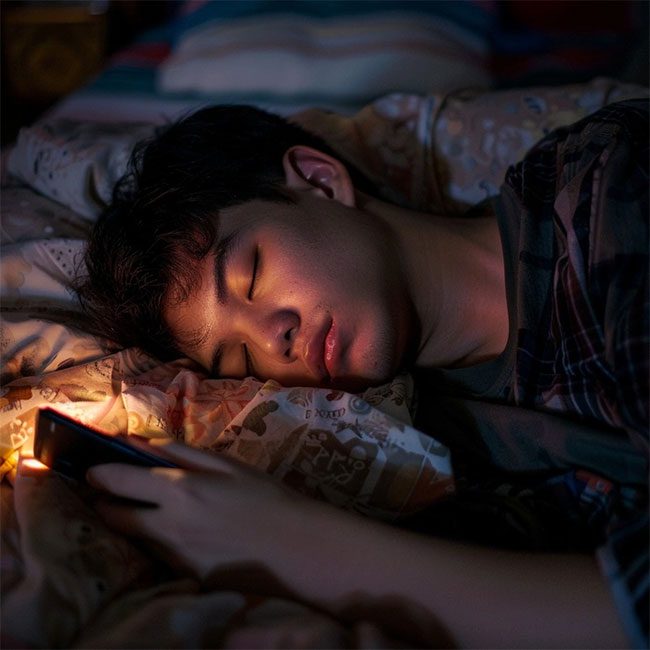
Your eyes are heavy, but instead of falling asleep, you try to stay awake and scroll through your phone. (Illustrative image).
But eventually, your brain tires out. It seems like it can no longer handle the allure of Facebook, Instagram, and TikTok. It’s past midnight, and you feel like you’re sinking into an endless loop.
You drift off to sleep unconsciously, with your phone still lit in hand, as YouTube plays video after video until morning.
The alarm rings like a sentence for your puffy eyes, your body is exhausted, reluctant to leave your bed. That’s when you blame yourself: Why didn’t I go to sleep earlier last night?
Today will be another tiring day at work. And when you get home, you rush through dinner, clean the house, shower, and once again lie down scrolling through your phone.
YouTube plays on repeat in your sleep. This loop continues endlessly, with no way to escape.
Bedtime Procrastination (BP): The Sleep Delay Effect
If you see yourself in the story above, there’s a good chance you’re experiencing a psychological effect known as “Bedtime Procrastination” or “sleep delay.”
This phenomenon was first described in a scientific paper published in 2014 in the journal Personality and Social Psychology. Researchers from the Clinical and Health Psychology department at Utrecht University in the Netherlands described a delay phenomenon they considered entirely new.
Previously, psychologists only discussed procrastination related to tasks, when someone intentionally delays an unpleasant task they have to do—like studying or meeting deadlines—due to anxiety and stress about starting it.
Now, it turns out that even going to bed—a pleasurable activity—can be delayed by us. Psychologists find this quite peculiar.
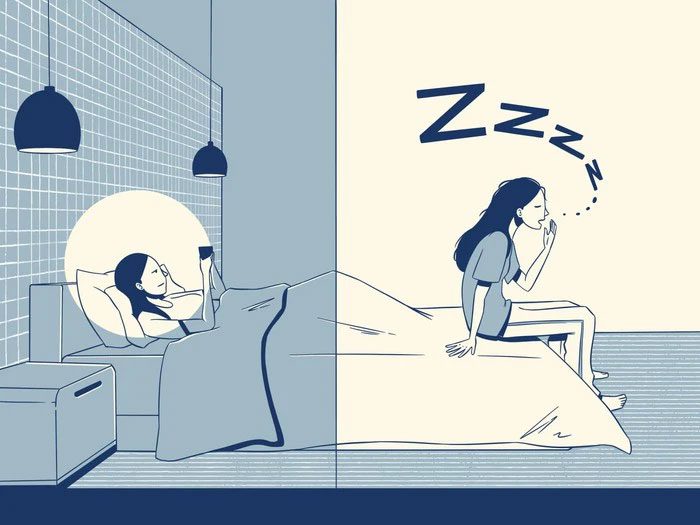
People with low self-control often also procrastinate their sleep. (Illustrative image).
Surveys in this study showed that nearly 30% of respondents sleep less than 6 hours each night. About 84% reported feeling they sleep too little or are tired at least one day a week. Nearly half of them, or 40%, reported that this often stretches into 3-4 consecutive days each week.
Strangely enough, the more tired someone appears during the day, the more likely they are to belong to the group that sleeps less instead of needing more sleep to recharge. Those with lower self-control often procrastinate their everyday activities and their sleep as well.
“Bedtime procrastination is defined as not going to bed at the scheduled time, when there are no external circumstances preventing a person from doing so</em," the researchers wrote.
“An interesting aspect of bedtime procrastination is that while procrastination is often related to unpleasant tasks, going to bed is usually not among those unpleasant behaviors. Thus, we hypothesize that the issue is not that people do not want to sleep, but that they simply do not want to give up other activities they could be doing.”
What’s it for? It’s for revenge ®
Indeed, the term “Bedtime Procrastination” was defined in 2014, but it wasn’t until 2020 that the prefix “Revenge” was added to it.
Daphne K. Lee, a Chinese-American journalist, was the first to coin the full term “Revenge Bedtime Procrastination” (RBP) or “Sleep Delay for Revenge“ in June 2020.
After noticing the phenomenon among young people in China, who often work under the 996 model (from 9 AM to 9 PM, six days a week), frequently staying up late to use their phones, Lee tweeted:
“Today I learned a very relatable term: ‘報復性熬夜’ (sleep delay for revenge), a phenomenon where people who don’t have much control over their daytime lives refuse to go to bed early to reclaim their sense of freedom at night.“
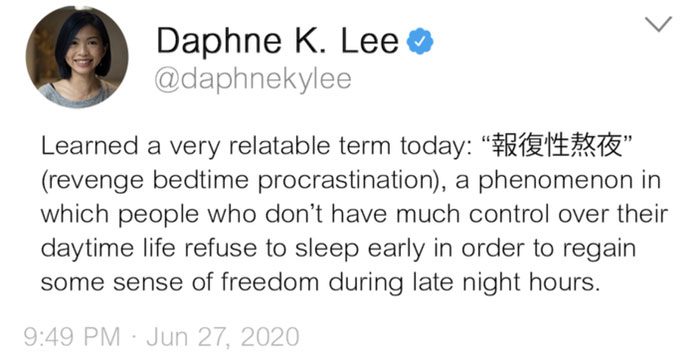
Illustrative image.
It turns out that when we are caught up in the whirlwinds of responsibilities to others during the day, such as working in a company to fulfill obligations to bosses, doing housework to meet duties to spouses, parents, children, we often feel out of control and as if we have no time for ourselves.
At night, when all those obligations are finally set aside, it’s the only moment we feel we have time for ourselves. The compensatory psychological mechanism drives us to do what we want, to “take revenge” for the time we lost during the day.
For those with healthy behaviors, they might exercise, read, or treat themselves to sleep. But in an age inundated with temptations like smartphones, social media, or a new series advertised on Netflix, spending time for oneself may simply mean scrolling through your phone to get quick doses of dopamine.
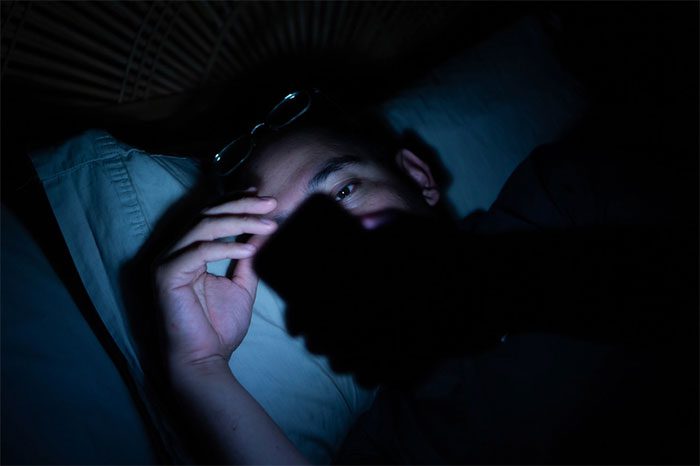
At night, when all obligations are set aside, you have time for yourself. (Illustrative image).
The authors of the 2014 study also noted: “With the rise of electronic devices and the 24/7 entertainment industry today, people face more distractions than they did a few decades ago.
Dealing with these distractions may be a primary reason behind bedtime procrastination, making it more challenging for those who procrastinate to stick to their schedules. Thus, bedtime procrastination may be a relatively modern phenomenon, making the study of this topic very relevant today.
Who is Most Affected?
According to psychologists, those most affected by revenge bedtime procrastination are the individuals with the highest need for revenge. They are typically busy during most of the day, such as students, employees, or parents with young children.
A 2019 study published in the journal Frontiers in Neuroscience indicated that women are more prone to this phenomenon than men, and those who often stay up late, belonging to the night owl category, are more likely to experience this revenge sleep delay than average individuals.
A study in the Journal of American College Health reported that about one-third of college students struggle with this issue due to academic pressures placed on them.
Meanwhile, a 2014 study indicated: “Procrastination is a common phenomenon that causes many problems. Its prevalence is reflected in impressive figures, such as up to 46% of college students reporting that they procrastinate on specific academic tasks, and about 10% of adults in the general population being chronic procrastinators.
“Sleep procrastination is inversely related to self-control and self-regulation abilities: those who score lower on self-control assessments report that they often procrastinate on sleep more.
For an individual, procrastinating sleep is particularly likely to occur when a person has little mental energy or self-control strength, as the decision to go to bed is typically made at the end of the day when self-control is often weaker.”
According to researchers, there are three signs to recognize whether you are caught in the revenge sleep procrastination effect, including:
- You often go to bed late, resulting in a total sleep time of less than 7 hours each night.
- You have no valid reasons for delaying sleep; there are no tasks to complete, no nighttime deadlines, no children to watch over… simply, you just don’t want to sleep.
- You are fully aware that sleeping late can have negative consequences, making you feel tired the next day, yet you still choose to do it.
What are the consequences?
In fact, sleep procrastination can start from a very small desire. You might think that you should take a little time for yourself, playing games on your phone or scrolling through Facebook or TikTok for 15 minutes before going to bed.
However, the addictive nature of today’s social media platforms often stretches that 15 minutes into hours. Furthermore, the blue light from electronic devices like phones, TVs, and computers can continue to disrupt your sleep and make it harder to fall asleep, even after you finish “getting back at” your day.
What are the consequences of this?
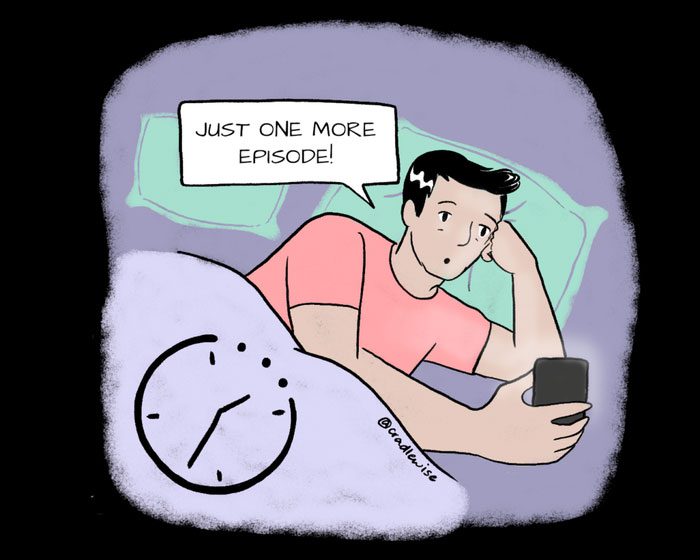
Sleep procrastination shortens sleep duration and increases fatigue throughout the next day. (Illustrative image).
A comprehensive analysis shows that sleep procrastination is associated with poorer sleep quality, shorter sleep duration, and increased fatigue throughout the next day. Those who procrastinate on sleep often exhibit restlessness, lack of focus, and loss of self-control.
Lack of sleep can lead to other mental health issues such as memory impairment and the phenomenon of “brain fog“, which makes it difficult to remember things, concentrate, and reduces sharp thinking ability.
This can easily lead you to make poor decisions the following workday, increasing feelings of anxiety, stress, discomfort, and irritability.
If sleep deprivation is not addressed, long-term consequences can include cardiovascular disease, diabetes, obesity, weakened immune system, hormonal issues, and mental health problems such as depression.
How to overcome it?
Now, if you recognize that you belong to the group caught in the vortex of revenge sleep procrastination, the good news is that experts have several strategies that can help you break free from it. Kendra Cherry, a psychosocial rehabilitation expert and author of the book The All-in-One Psychology, offers 6 suggestions:
1. Prioritize sleep
If your goal is to rest, the first thing you can do is elevate sleep to the top of your priority list. Remind yourself why going to bed on time is important. If you get more rest, you will have the energy to complete necessary tasks earlier the next day, allowing more time for yourself.
2. Practice good sleep habits
Make your nightly sleep a healthy ritual or habit. For example, go to bed and wake up at the same time every day of the week, including weekends. Research shows that establishing such a sleep schedule teaches your body a good sleep pattern, and you will be healthier.
Additionally, avoid consuming caffeine, alcohol, or any other stimulants, including blue light from screens at night.
3. Organize your schedule
Since a busy schedule is often the root of sleep procrastination, you should carefully examine your daily needs and responsibilities. Cut out unimportant tasks that consume your time. If daytime activities leave you feeling unsatisfied and unfulfilled, feel free to skip them if possible.
You are less likely to feel the need to “get back” at lost time if you do not feel frustrated about losing those precious hours during the day.
4. Make time for yourself
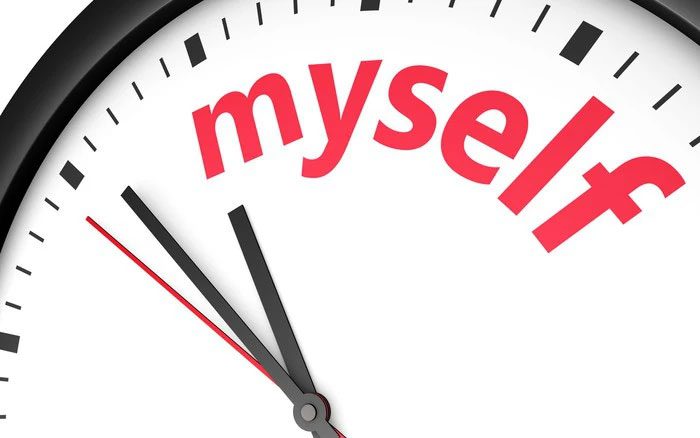
Cut out unimportant tasks that consume your time. (Illustrative image).
As you eliminate everything from your schedule, focus on replacing those unwanted activities with time for yourself during the day. This is not always easy, especially for parents with young children or busy workers who cannot afford to neglect their obligations and responsibilities.
However, there is a way to cope with this. Ask someone—perhaps a colleague, parents, friends, babysitters, or your partner—to temporarily take over some of your responsibilities while you enjoy a bit of your own time.
5. Start your evening earlier
Another way to combat sleep procrastination is to start your nightly routine earlier. Set an alarm an hour before you start getting ready for bed. Allowing yourself extra time to relax can help you feel sleepier, which can aid in resisting the urge to stay up late.
6. Turn off your phone
Your phone is the enemy of sleep. You might want to turn it off or even keep it out of your bedroom if you want to tackle the root of the sleep procrastination issue. Instead of using your phone, practice some relaxing habits that promote sleep, such as meditating, gently stretching your body, or reading a book.
Hopefully, these strategies can help you break free from the cycle of revenge sleep procrastination. Don’t forget that a rewarding experience awaits you outside that cycle—you will no longer feel sluggish every morning when you wake up, every day will be full of energy, and you will find time to live for yourself.


















































